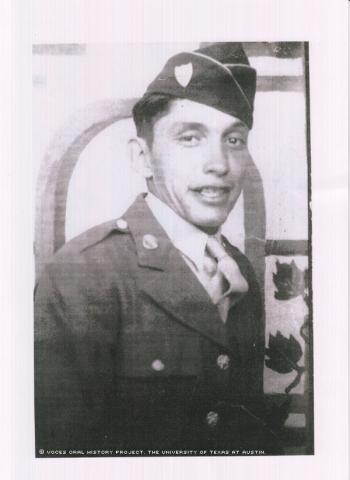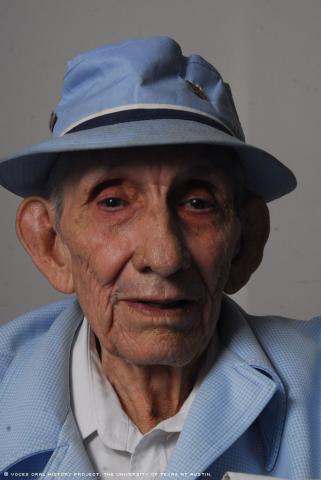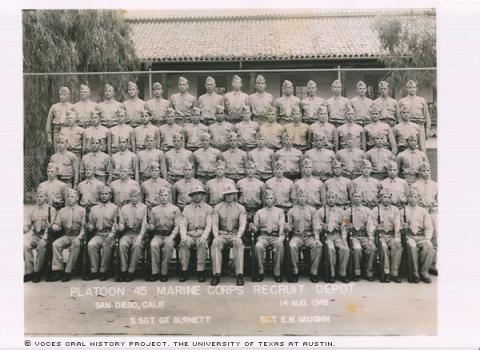


By Alyson Espino
Johnnie Gonsalez can't recall much of his time serving in the military, but he remembers how grateful he was to make it back home alive.
Born in the small city of Florence, Kansas, Gonsalez grew up with three brothers and two sisters. He boxed with his brothers for fun in the backyard and stuck closely to his mother and father. By the sixth grade, Gonsalez had dropped out of school and begun working as a flagman on the railroad lines with his father.
Although he grew up during the Great Depression, he never felt it hit home.
"I didn't even realize if my family struggled economically," he said. "I didn't know the Great Depression existed; we got along all right."
Gonsalez decided to go into the military at the age of 19 - not because he wanted to be able to afford luxuries but because he wanted to fight for his country. He enlisted in the U.S. Army on Nov. 3, 1942, and was sent to basic training in Fort Riley, Kansas.
Gonsalez got to know all of the men within his unit as brothers. The unit consisted mostly of Anglo-American men and only about five Mexican-American men that he can remember.
"We were on a big ship where you just see blue water as far as you can see; there was never a sense of racism. ... We were more like one big, happy family," Gonsalez said of his unit's voyage to India.
During the time he served in the China-Burma-India Theater, Gonsalez was stationed primarily in India, where he ate, slept and fought off the Japanese enemy One time he found himself eating worms to satisfy his hunger, something he said he would never do again. During his third year at war, he witnessed a man's leg being blown off by a hand grenade.
"I don't tell many people about eating worms or all of my stories because they are going to believe what they want to believe anyway," Gonsalez said. "People want to hear the graphic ones, but when they do, they find those are the hardest to believe. ... Sometimes I don't tell them nothing."
After three long years, the war finally came to an end. Gonsalez was still at camp in Burma, living a normal day, when he found out the war had ended. He didn't jump for joy, he didn't high-five anyone, and he didn't show much excitement. But he knew that word of the war ending was undoubtedly true.
"The sound of artillery going off was always very loud, so when I stopped hearing all of the big weapons and the guns being shot, I knew that something had changed; something had ended," Gonsalez said.
Gonsalez was discharged with the rank of private first class on Oct. 19, 1945, and returned home to his family, who half-expected him to be dead. Because he had no time or equipment to write home during the war, his family never knew whether he was still alive. His name was passed on in remembrance just in case.
"My family called my youngest brother John III because they didn't know if I was alive or not," Gonsalez said. "My dad's name is John and so am I, and that's what they called my brother."
Today he resides in Wichita, Kansas, and still enjoys everything local that he knew growing up. He goes to the same restaurants, listens to the same music and looks at both the military and life the same way that he did 60 years ago.
"I'm 88 years old and the doctor tells me I got another 10 years on me ... I don't know if that's true, but I don't think much into it because I am still just glad to be alive," Gonsalez said.
Mr. Gonsalez was interviewed by Tella Garcia in Wichita, Kansas, on June 15, 2010.

